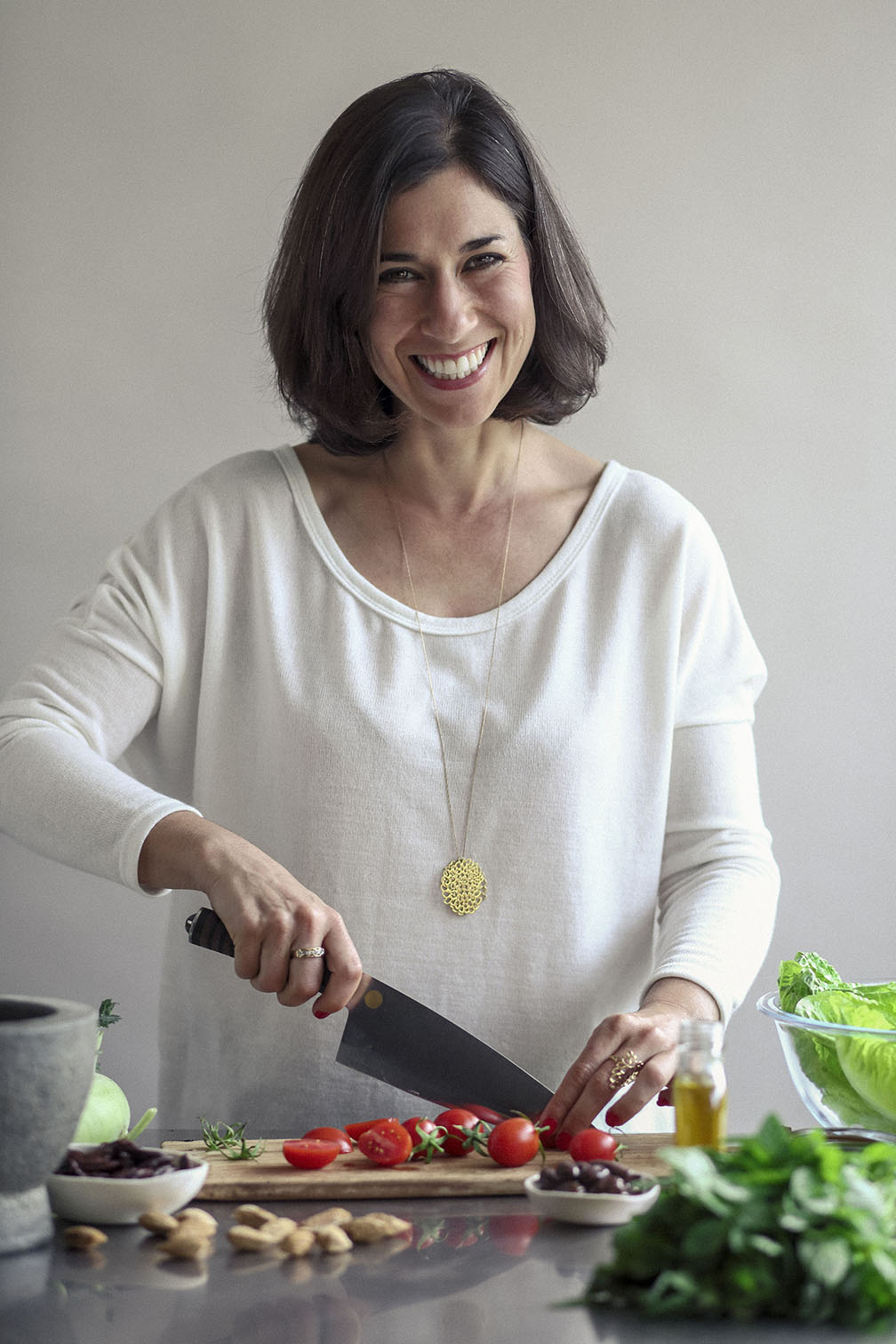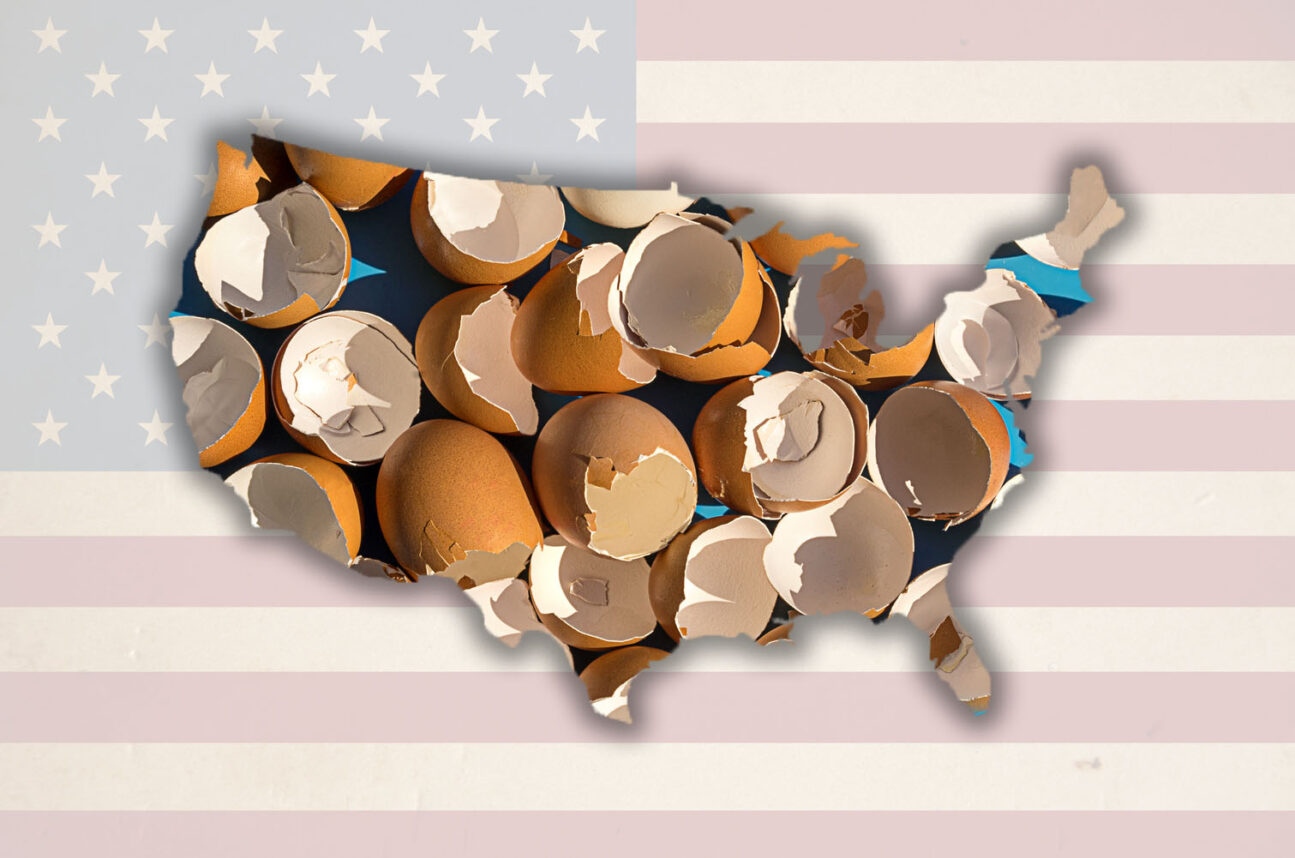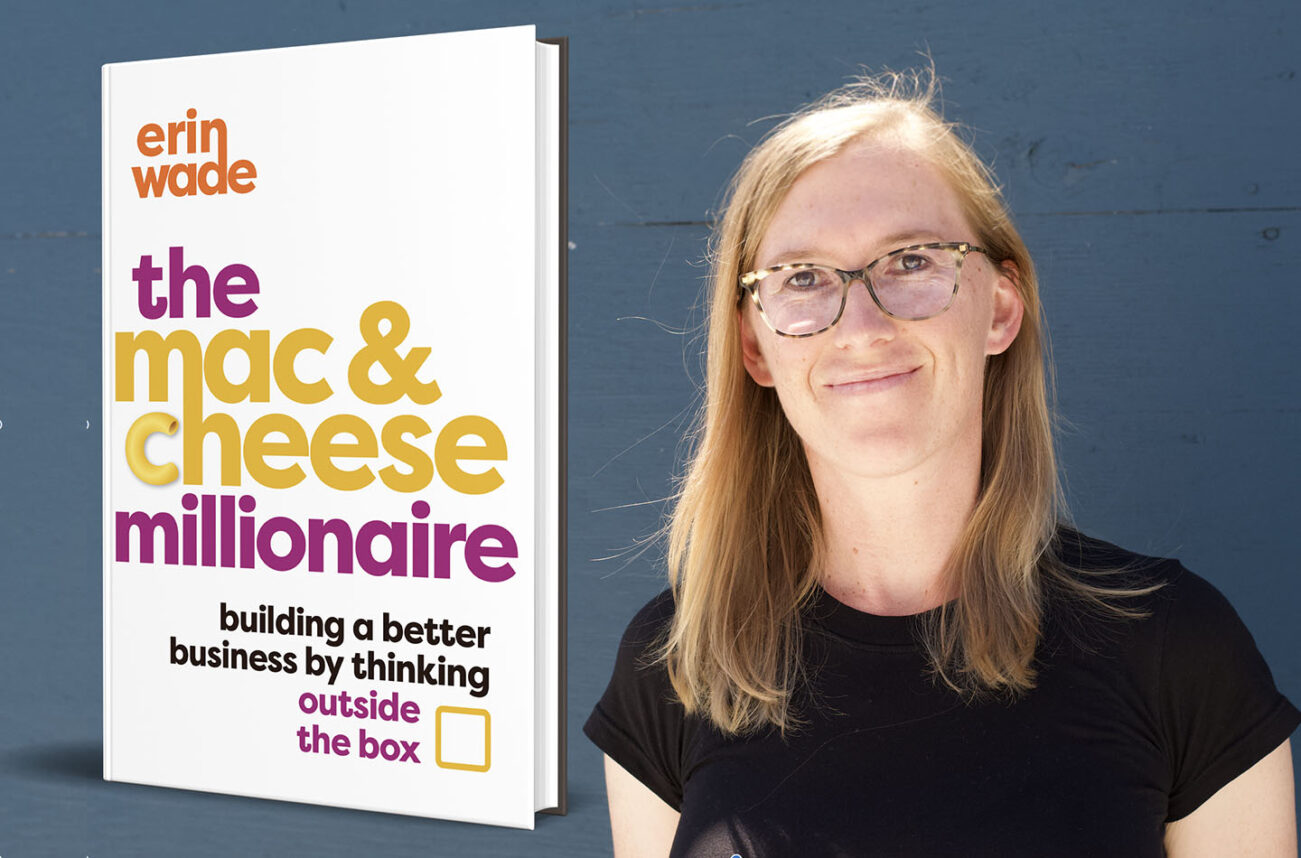 Photo by Dan Perez
Photo by Dan Perez What do you do when you visit family in Israel?
“You eat,” Inbal Baum told the Journal. “You go from one meal to the next.”
Baum grew up in America to Israeli parents, so they would always go to Israel on vacation.
“All of a sudden I have this family that I don’t have most of the year,” Baum said. “That to me was Israel; it was the joy … and the sharing of food together.”
Baum is now in the business of sharing that joy with others. After working as an attorney in Manhattan, and becoming a yoga instructor, Baum moved to Israel where she founded Delicious Israel, the country’s leading culinary tourism business.
“This is our bar mitzvah year, our 13th year,” she said. “Thirteen years ago, people were not talking about Israeli food the way that they are today.”
They didn’t have the familiarity with things, like shakshuka and Israeli spices. Now a love of Israeli food is everywhere.
Baum and her family moved from Tel Aviv to Park City Utah during the pandemic (her brother lives there and her Israeli husband loves to ski), she expanded her offerings with Delicious Experiences, virtual corporate events. (Baum claims they are still visiting, three ski seasons later; Israel is still home.) She launched Delicious Cities, a global network of immersive food tours, after October 7.
When asked why people love Israeli food so much, Baum said it has a lot to do with the way they eat.
“People don’t want and don’t have the bandwidth to sit at French restaurants with white tablecloths and three course meals that take hours and hours and hours,” she said. “They want [to eat] healthy [and] relatively quick.”
Baum believes people are willing to put time into an experience, but it shouldn’t feel like it’s never-ending.
“Even when you sit in a restaurant in Israel or you’re eating Israeli food, you don’t have to say, ‘Bring whatever comes first,’ that’s just how you eat,” Baum said. “It’s family style, it’s togetherness around the table.”
They also want diverse and delicious food.
“If you look at an Israeli restaurant menu, it’s just so many things,” she said. “You’ve got vegan, gluten-free, healthy and indulgent; you’ve got the full range.”
When she does food tours, Baum finds joy in seeing families create those food memories, similar to those she had as a kid.
“When children get exposed to [new tastes] in this different way and in this different environment with this different openness … it’s a beautiful thing to see.” she said.
One of Baum’s favorite treats is malabi, a milk pudding that is Turkish in origin and Middle Eastern in flavor. Recipe is below.
According to Baum you can find malabi at every level of eating in Israel.
“You can go to a street corner and get a … not-so-good quality version of it or you can go to places called, a malabia [and] that’s the only thing they sell,” she said. “And then there’s the high-end restaurants that are now doing really exquisite, fine plating, deconstructed versions.”
Baum loves the recipe, because it’s flexible.
“You can make it creamier, you can make it thicker,” she said. “If it’s seasonal, you can do apricot dressing [or] mango dressing on it for the sauce on top.
“The bottom is like a blancmange in France, it’s like a blank page. You can really put whatever you want on top to make it shine.”
Learn more at DeliciousIsrael.com, DeliciousCities.com and DeliciousExperiences.com. Follow @DeliciousIsrael, @DeliciousCities and @DeliciousExperiences on Instagram.
For the full conversation, listen to the podcast:
Coconut Cream Malabi

This delightful sweet dish can be enjoyed any time of day, and is perfect in the hot Israeli summers. We love to sip Turkish coffee flavored with cardamom alongside this sweet dish.
Our vegan and parve friendly Coconut Cream Malabi is surprisingly simple to make. Feel free to play around and mix in your favorite toppings and syrups! The recipe below serves four, but this can be easily doubled or even tripled for larger crowds.
Ingredients
1 can coconut cream (fat content should be greater than 14% for the best results)
3 tbsp. sugar
3 tbsp. cornstarch
1/3 cup of water
1 teaspoon of vanilla extract OR rose or orange blossom water (the floral waters can be added at various points in the process, depending on your preference)
Crushed (or chopped) nuts, to taste
Desiccated coconut
Pomegranate molasses and/or silan
Optional toppings: chopped seasonal fruit (strawberries, apricots, mango)
Instructions
In a small saucepan combine the coconut milk and sugar. Bring to a boil.
Meanwhile, in a small bowl mix the cornstarch and water until well combined. Slowly add the cornstarch to the saucepan, continuously stirring.
Over medium heat, continue stirring until the pudding thickens – this may take 3 to 5 minutes. If needed to thicken, add additional cornstarch in small amounts until the mixture begins to thicken.
Mix in the vanilla extract, orange blossom or rose water, then pour or ladle into four small bowls.
Allow to cool before serving (approximately one hour, but can be less).
When ready to serve, top with a layer of pomegranate molasses or silan (date honey), desiccated coconut and ground nuts.
Debra Eckerling is a writer for the Jewish Journal and the host of “Taste Buds with Deb.” Subscribe on YouTube or your favorite podcast platform. Email Debra: tastebuds@jewishjournal.com.






















 More news and opinions than at a Shabbat dinner, right in your inbox.
More news and opinions than at a Shabbat dinner, right in your inbox.